Home

Baby Face Cream vs Baby Lotion: Which is Best for Your Baby?
In this Article

Baby Face Cream vs Baby Lotion: Which is Best for Your Baby?
Updated on 24 October 2023
As a parent, you want nothing but the best for your little one, especially when it comes to their delicate skin. The choice between baby face cream and baby lotion can be a perplexing one. What's the difference, and which is the ideal choice to keep your baby's skin soft, smooth, and well-nourished? In this article, we'll unravel the mysteries of these two skincare options, helping you make an informed decision to ensure your baby's skin remains as tender and beautiful as ever.
What should you apply on your baby's face: baby cream or lotion?
The choice between applying baby cream or baby lotion on your baby's face depends on various factors, including your baby's skin type and the specific needs of their skin. Here's a general guideline to help you decide:
Baby Cream
1. Thicker Consistency
Baby creams are thicker and more emollient than lotions, providing a stronger barrier to lock in moisture. They are ideal for babies with dry or sensitive skin.
2. Dry or Chapped Skin
If your baby has dry or chapped skin on their face, a baby cream can provide extra hydration and protection.
3. Cold Weather
During cold and dry weather, a baby cream can help shield your baby's skin from harsh elements.
4. Eczema or Skin Conditions
If your baby has eczema or other skin conditions, a pediatrician may recommend a specific baby cream to address their needs.
You may also like: The Benefits and Risks of Using Hydrocortisone Cream for Babies
Baby Lotion
1. Lighter Consistency
Baby lotions have a lighter consistency and are more easily absorbed. They are suitable for babies with normal to oily skin.
2. Everyday Use
Baby lotion is often used for daily moisturizing and to keep your baby's skin soft and smooth.
3. Warmer Weather
In hot or humid weather, a baby lotion can provide adequate moisture without feeling heavy on the skin.
Ultimately, the choice may also depend on personal preferences and your baby's specific skin needs. It's crucial to choose a product that is hypoallergenic, free from fragrances and harmful chemicals, and safe for a baby's sensitive skin.
You may also like: Is It Safe to Use a Baby Lotion for Your Newborn?
Can you apply a baby moisturizing cream on a newborn's face?
You can use baby cream on your newborn's face as needed. For many babies, this might not be necessary every day, especially if their skin is naturally healthy. However, if your baby's skin appears dry or flaky, or if they have specific skin concerns, you can apply the cream to provide extra hydration and protection.
Before applying the moisturizing cream all over your newborn's face, perform a patch test. Apply a small amount to a small area of your baby's skin, wait for 24 hours, and check for any adverse reactions.
If there's no redness, itching, or irritation, it's likely safe to use on their entire face. You only need a small amount of moisturizing cream to cover your baby's face. Apply it gently and sparingly, avoiding excessive rubbing or pressure on the baby's sensitive skin.
What are the benefits of using a baby face cream?
Using a baby face cream offers several benefits, especially for the delicate and sensitive skin of infants. Here are five key advantages:
1. Moisturization
Baby creams provide essential hydration to your baby's skin. They help lock in moisture, preventing dryness and flakiness, which is especially crucial in areas like the face, which can be prone to dry patches. Well-moisturized skin is comfortable and less likely to experience irritation.
2. Skin Protection
Baby moisturizing creams act as a protective barrier, shielding your baby's skin from environmental factors such as wind, cold, and pollutants. This protective layer helps maintain the skin's natural defenses, keeping it safe from harsh external elements.
3. Soothing Properties
Many baby creams contain soothing ingredients that can help alleviate skin irritations or minor redness. These creams are gentle and can provide relief to your baby's sensitive skin, making them an excellent choice if your baby has mild skin discomfort.
4. Preventing Dryness and Rashes
The gentle moisturization provided by face creams can help prevent common skin issues such as dryness and rashes. Dry skin can lead to discomfort, itching, and potential rashes. A good baby face cream can act as a preventive measure.
5. Bonding and Comfort
Applying a baby moisturizing cream can be a calming and bonding experience for both parent and baby. The gentle touch and massage involved in the application process can help your baby relax and feel comfortable. This bonding time is not only beneficial for the baby's emotional development but also provides an opportunity for parent-child interaction.
Which ingredients should you avoid in baby creams and lotions?
When choosing baby creams and baby lotions, it's important to be mindful of the ingredients to ensure they are safe and gentle for your baby's delicate skin. Here are five ingredients to avoid:
1. Fragrances
Fragrances, often listed as "parfum" or "fragrance" on product labels, can be a common cause of skin irritation and allergies, especially in babies with sensitive skin. Fragrance-free products are a safer choice to minimize the risk of skin reactions.
2. Parabens
Parabens, such as methylparaben, ethylparaben, and propylparaben, are preservatives used in many cosmetics and skincare products. They have been a concern due to their potential to disrupt hormonal balance. It's advisable to choose paraben-free products for your baby.
3. Phthalates
Phthalates are chemicals used to make plastics more flexible. They may be found in fragrances and can potentially affect hormone production. Phthalates are best avoided in baby skincare products.
4. Mineral Oil
Mineral oil is a common ingredient in many skincare products, but it is a petroleum byproduct. While it is generally considered safe, it is best to opt for natural alternatives like plant-based oils (e.g., sunflower oil, coconut oil) that are more gentle on a baby's skin.
5. Sulfates
Sodium lauryl sulfate (SLS) and sodium laureth sulfate (SLES) are foaming agents commonly used in shampoos, soaps, and lotions. They can be harsh on a baby's sensitive skin, causing dryness and irritation. Look for sulfate-free baby products to avoid these ingredients.
Additionally, it's important to check for any other specific allergens that your baby may be sensitive to. Always read product labels carefully and choose baby creams and lotions that are formulated for sensitive skin, hypoallergenic, and free from harmful or potentially irritating ingredients.
You may also like: 10 Useful Baby Care Tips for New Parents
Tips to help you choose the best baby face cream
Here are some guidelines to consider:
1. Choose a Baby-Specific Product
Select a baby moisturizing cream that is specifically formulated for newborns or infants. These products are designed to be gentle and safe for a baby's delicate skin.
2. Hypoallergenic and Fragrance-Free
Opt for a moisturizing cream that is hypoallergenic and fragrance-free to minimize the risk of skin irritation or allergies. Newborn skin is particularly sensitive, so it's best to avoid products with strong fragrances.
3. Check the Ingredients
When selecting a face cream for your baby, it's essential to read and understand the ingredient list. Look for products that are free from harsh chemicals, fragrances, dyes, and known allergens. Ideally, opt for hypoallergenic and fragrance-free creams, as they are less likely to irritate your baby's sensitive skin. Some common ingredients to avoid include parabens, phthalates, and sulfates.
4. Choose a Gentle and Nourishing Formula
The best cream for newborn baby is formulated to be gentle and hydrating. Look for creams with natural and soothing ingredients such as shea butter, cocoa butter, jojoba oil, and aloe vera. These ingredients can help moisturize and protect your baby's skin without causing irritation. Be cautious of products that contain excessive chemical compounds or artificial additives.
5. Consult a Pediatrician
Before using any product on your baby's skin, it's crucial to consult with a pediatrician or a healthcare professional. They can offer personalized recommendations based on your baby's skin type and any specific concerns, such as eczema or allergies. Pediatricians can also guide you on ingredients to avoid, which is especially important if your baby has sensitive skin.
The Bottomline
In the quest to provide the best care for our little ones, the choice between baby creams and lotions is undoubtedly an important decision. Regardless of your choice, always prioritize gentle, hypoallergenic, and fragrance-free options to reduce the risk of skin irritation or allergies. In the end, what truly matters is the love, care, and attention you provide to your baby. As your baby grows, their skincare needs may evolve, so don't be afraid to adapt your approach to cater to their changing requirements.
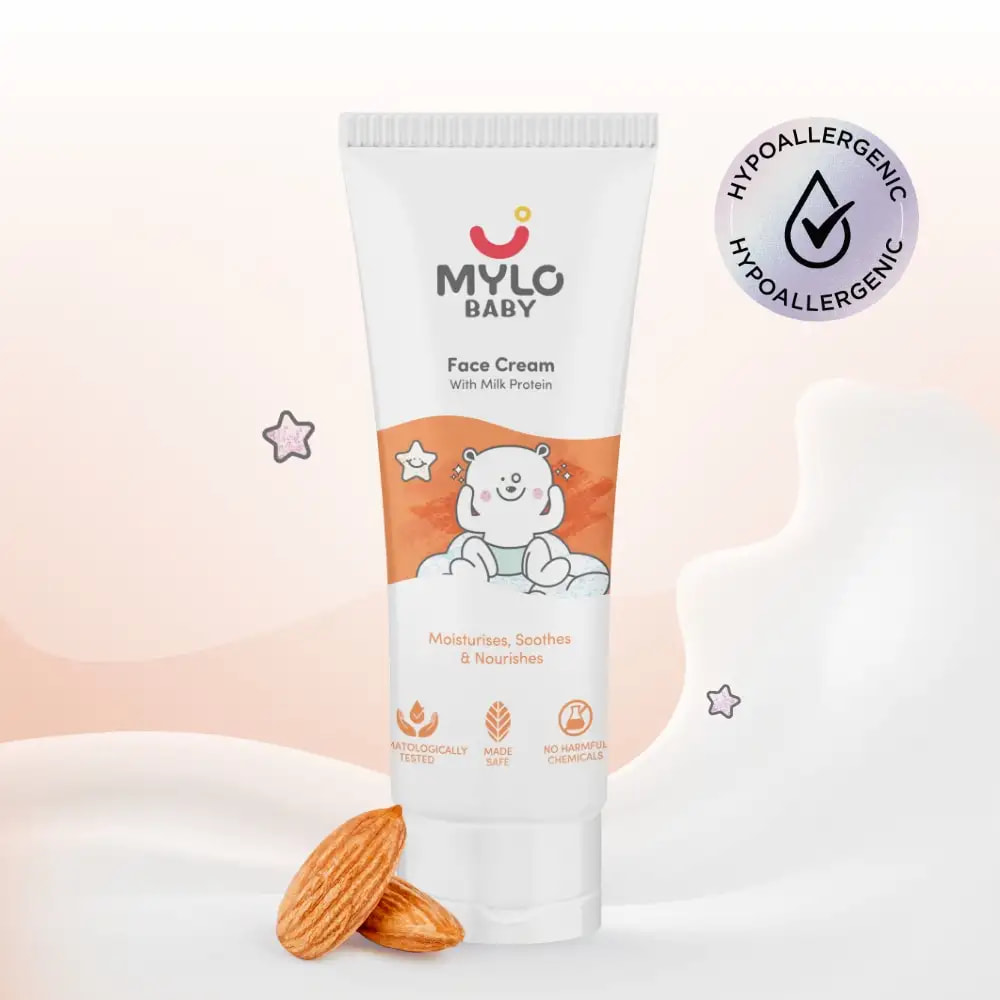
Baby Cream for Face - 100 gm
Dermatologically Tested | Made Safe Australia Certified | Nourishes & Brightens Skin | Soothes Skin Irritation
₹ 99

4.3
(3804)


33267 Users bought



Written by
Anupama Chadha
Anupama Chadha, born and raised in Delhi is a content writer who has written extensively for industries such as HR, Healthcare, Finance, Retail and Tech.
Read MoreGet baby's diet chart, and growth tips

Related Articles
Related Questions
Hello frnds..still no pain...doctor said head fix nhi hua hai..bt vagina me pain hai aur back pain bhi... anyone having same issues??

Kon kon c chije aisi hai jo pregnancy mei gas acidity jalan karti hain... Koi btayega plz bcz mujhe aksar khane ke baad hi samagh aata hai ki is chij se gas acidity jalan ho gyi hai. Please share your knowledge

I am 13 week pregnancy. Anyone having Storione-xt tablet. It better to have morning or night ???

Hlo to be moms....i hv a query...in my 9.5 wk i feel body joint pain like in ankle, knee, wrist, shoulder, toes....pain intensity is high...i cnt sleep....what should i do pls help....cn i cosult my doc.

Influenza and boostrix injection kisiko laga hai kya 8 month pregnancy me and q lagta hai ye plz reply me

RECENTLY PUBLISHED ARTICLES
our most recent articles
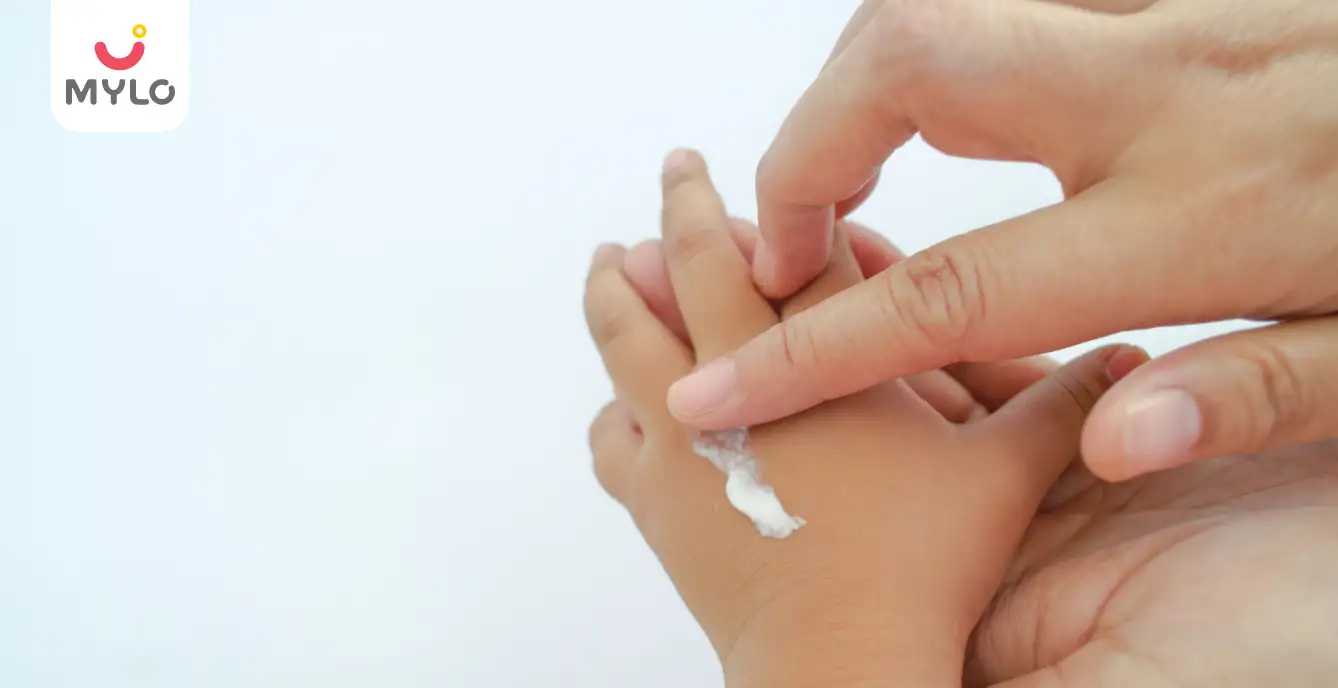
skin care
The Benefits and Risks of Using Hydrocortisone Cream for Babies

Second Child
The Ultimate Guide to Planning for Second Baby
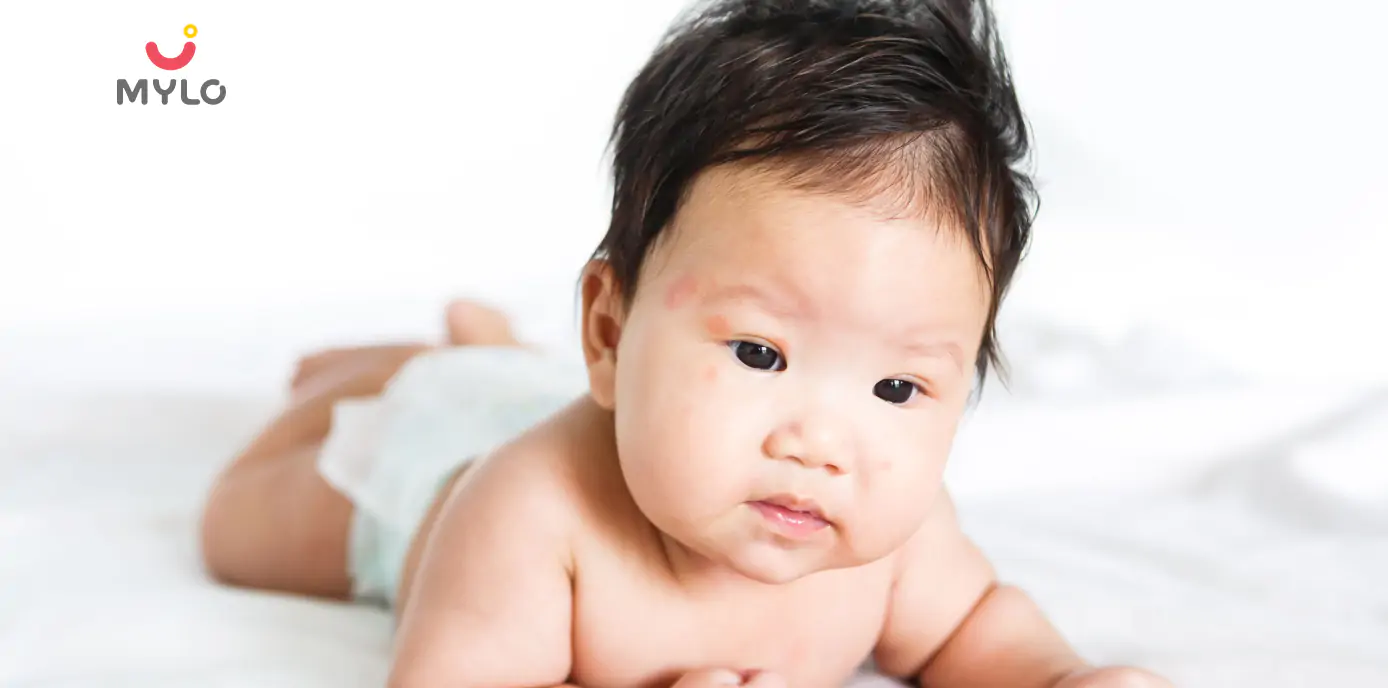
Illnesses & Infections
The Ultimate Parent's Guide to Dealing with Boils in Babies
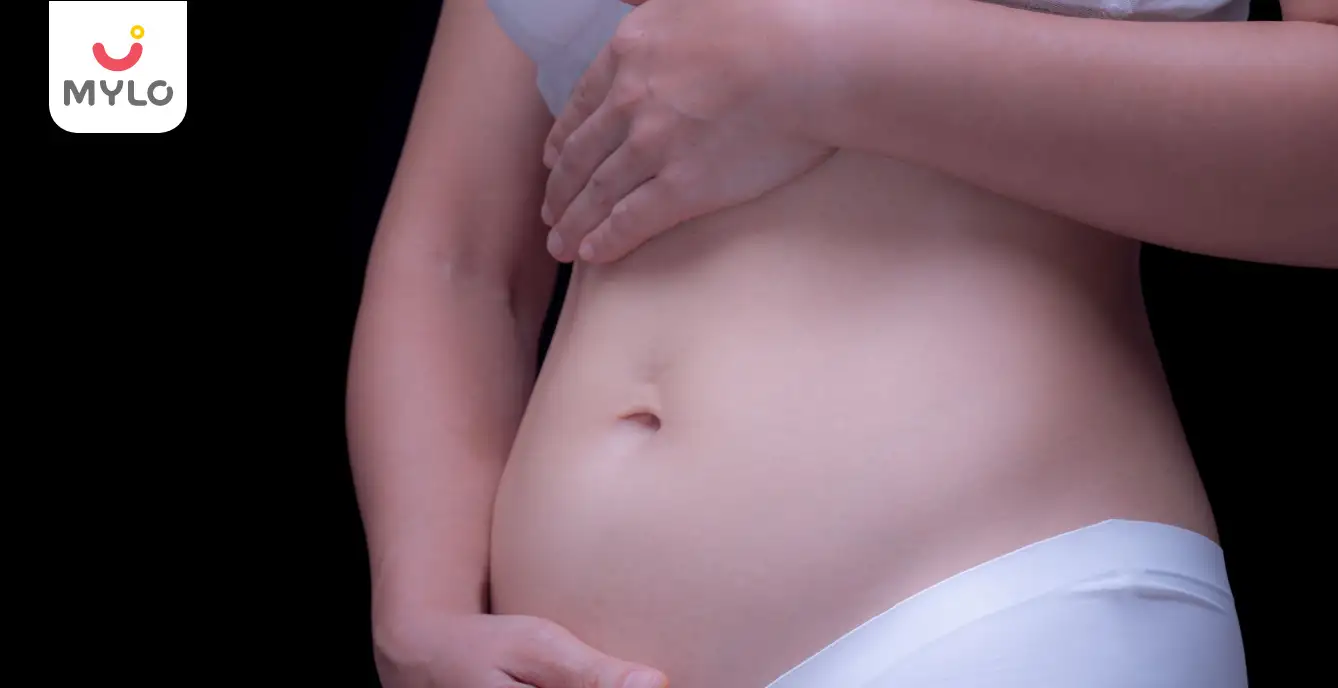
Baby Movements
2 Months Pregnant Belly: Understanding Your Belly and Baby's Transformation

Conception
The Significance of Trilaminar Endometrium in Fertility: What You Need to Know
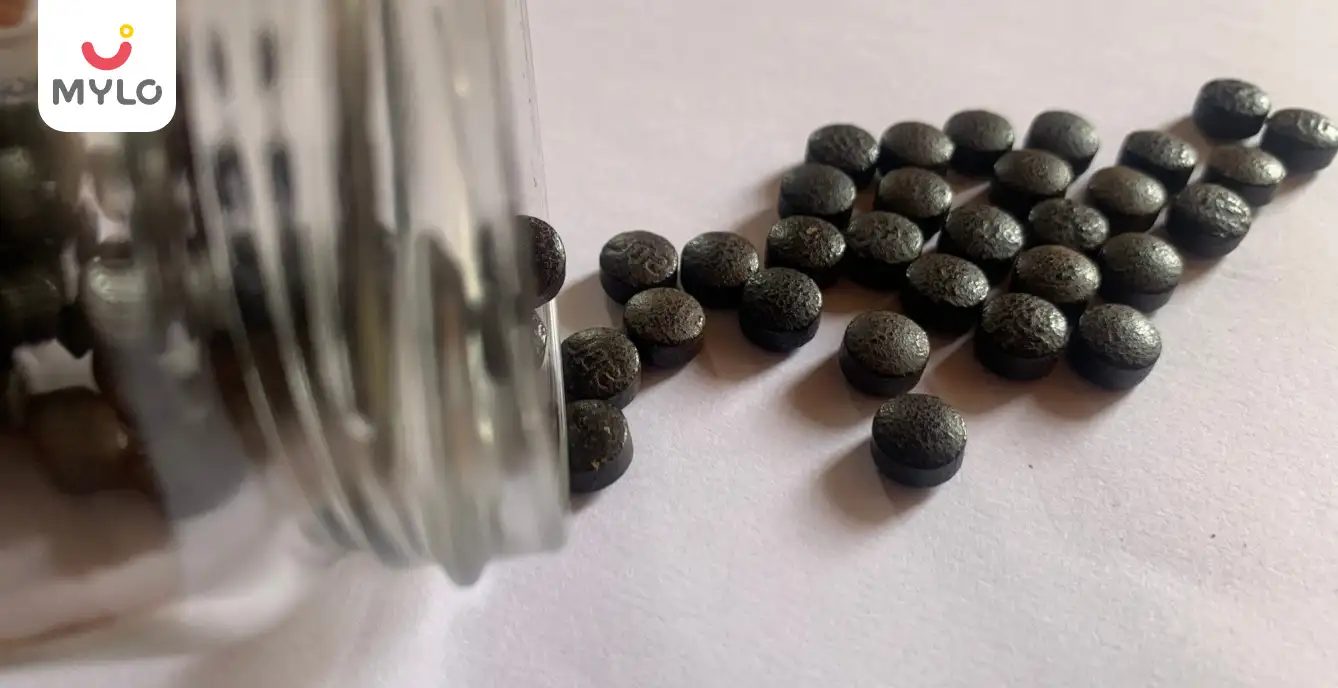
Herbal Medicines
Kanchanar Guggulu: Your Ultimate Guide to a Healthy Lifestyle
- First Trimester of Pregnancy
- Top 10 Comedy Movies on Hotstar to Make You Laugh Your Heart Out
- Stages of Pregnancy by Trimester
- Your Streaming Guide to the Best Web Series on Hotstar in Hindi
- Top Romantic Movies on Hotstar That'll Melt Your Heart
- When to Have Another Child: Timing and Tips
- Top 10 Benefits of Triphala: Discover the Hidden Health Secrets
- Ayurvedic Medicine for Irregular Periods: Discovering Ancient Remedies for Hormonal Harmony
- The Link Between Missed Period and White Discharge
- Vata Pitta Kapha: The Ultimate Guide to Discovering Your Ayurvedic Constitution
- Top 10 Romantic Web Series on Hotstar You Must Watch
- Back Pain During Period: Understanding the Causes and Solutions
- Pain After Sex: The Ultimate Guide to Understanding Causes and Finding Relief
- Coffee in Periods: Debunking the Myths and Understanding the Facts


AWARDS AND RECOGNITION

Mylo wins Forbes D2C Disruptor award

Mylo wins The Economic Times Promising Brands 2022
AS SEEN IN

- Mylo Care: Effective and science-backed personal care and wellness solutions for a joyful you.
- Mylo Baby: Science-backed, gentle and effective personal care & hygiene range for your little one.
- Mylo Community: Trusted and empathetic community of 10mn+ parents and experts.
Product Categories
baby carrier | baby soap | baby wipes | stretch marks cream | baby cream | baby shampoo | baby massage oil | baby hair oil | stretch marks oil | baby body wash | baby powder | baby lotion | diaper rash cream | newborn diapers | teether | baby kajal | baby diapers | cloth diapers |




